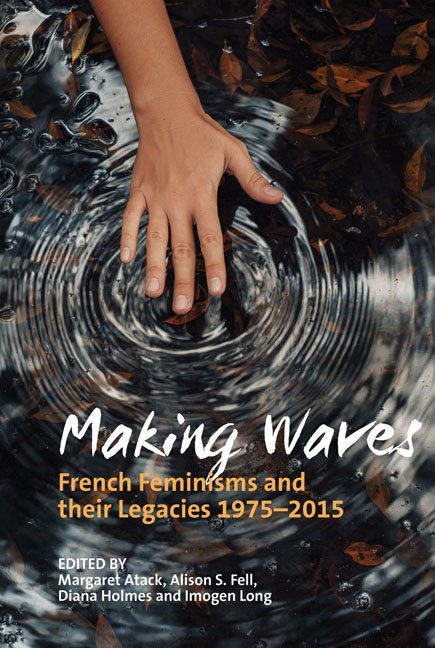Book contents
3 - From Muse to Insoumuse: Delphine Seyrig, Vidéaste
Summary
For most cinephiles, the name Delphine Seyrig evokes ethereal beauty, gestural mannerism, high-literary experimentation and a chiselled, aristocratic bearing – qualities that were cemented by her role in the film that catapulted her career and left audiences spellbound: Alain Resnais's 1961 Last Year at Marienbad. This performance forever caged her in the image of a heavenly ‘apparition’, reinforced by one admirer’s reading of divine destiny in her initials ‘DS’ as ‘déesse’ (Poirié, 2007): French for ‘goddess’. Even though Marienbad presented Seyrig to the world as a muse for art and literary – male auteurist – cinema, the 1970s witnessed a Seyrig who redirected her talents and commitments toward women's cinema and an explicitly defined feminist politics. Through Seyrig, we can tell the history of 1970s French feminism as a media history, which she helped document by co-founding the Centre audiovisuel Simone de Beauvoir, a feminist video archive, with co-conspirators Carole Roussopoulos (a singular videaste in her own right) and Ioana Wieder.
While working on the periphery of the French New Wave, Seyrig associated with more politically committed Left Bank filmmakers such as Resnais and Agnès Varda, acted in films by photographer-filmmaker William Klein and collaborated with filmmakers Chantal Akerman, Marguerite Duras and Ulrike Ottinger. Notable performances in films such as India Song and Jeanne Dielman, 23 quai du commerce, 1080 Bruxelles (both 1975) marked Seyrig's transition into a film practice that was driven by women for women. Seyrig also acted on the stage – some 25 plays between 1952 and 1987 – but her accomplishments in the theatre, like her feminism, receded into the shadows of Marienbad and auteurist cinema. Critics have questioned the politics of films such as Jeanne Dielman and India Song, despite the counter-argument that politics and formalism weren't mutually exclusive. If feminist politics were discerned at all, critics attributed it to the films’ directors, such as Akerman and Duras. Seyrig understood at the time that working as an actress and a feminist appeared oxymoronic, even impossible, which contributed to the erasure, if not dismissal, of the artistic and cultural labour of female performers and citizens.
Moreover, film history has typically favoured the history of film directors. In pursuing this angle of approach, it has marginalised actors and actresses. Stars studies has become an important subfield investigating the industrial and capitalist side of cinema, propelled by a longstanding obsession with celebrity.
- Type
- Chapter
- Information
- Making WavesFrench Feminisms and their Legacies 1975–</I>2015, pp. 51 - 70Publisher: Liverpool University PressPrint publication year: 2019



